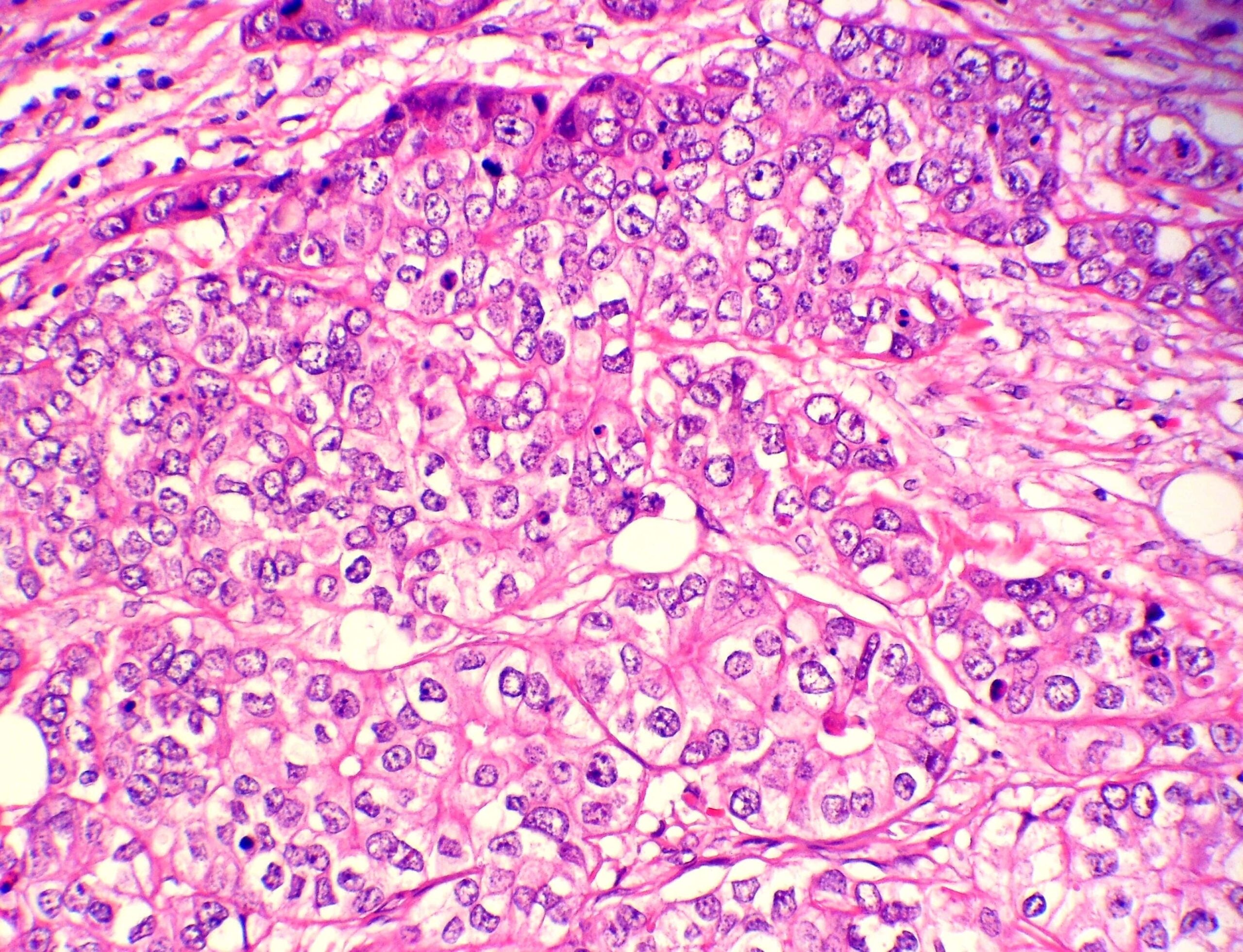
Anglo-Swedish pharma giant AstraZeneca has entered into a global development and commercialisation agreement with Tokyo-headquartered Daiichi Sankyo for the latter’s TROP2 antibody drug conjugate (ADC) DS-1062.
Created using Daiichi Sankyo’s proprietary DXd ADC technology, DS-1062 is currently in Phase I development for heavily pre-treated patients with advanced non-small cell lung cancer (NSCLC) and triple negative breast cancer (TNBC). NSCLC and breast cancers express Trop2 and are tumour types that have been a strategic focus for AstraZeneca.

Discover B2B Marketing That Performs
Combine business intelligence and editorial excellence to reach engaged professionals across 36 leading media platforms.
According to the terms of the agreement, Daiichi Sankyo will receive $1bn in staged payments from AstraZeneca. The Japanese company will also be eligible for up to $1bn for regulatory milestones and $4bn for sales-related milestones.
The global agreement excludes Japan, where Daiichi Sankyo will retain exclusive rights to DS-1062 and will pay AstraZeneca mid-single-digit royalties.
“This deal will allow Daiichi Sankyo, together with AstraZeneca, to optimise the allocation of resources needed to maximize DS-1062 over the next five-year business plan and beyond,” notes Daiichi Sankyo’s senior vice-president and global head of oncology development Gilles Gallant.
Gallant adds that the agreement will also support Daiichi Sankyo’s other DXd ADCs by allowing the company to “optimise the allocation of resources needed to maximize our third lead ADC, U3-1402,” as well as move other products, such as DS-7300 and DS-6157, forward over the next five years.

US Tariffs are shifting - will you react or anticipate?
Don’t let policy changes catch you off guard. Stay proactive with real-time data and expert analysis.
By GlobalDataDaiichi Sankyo’s ADC DS-1062
ADCs involve three components: a monoclonal antibody modified to specifically target a certain antigen, a highly potent chemotherapy agent and a linker. The concept behind the drugs is that they deliver chemotherapy selectively to cancer cells and, therefore, avoid the side effects normally associated with chemotherapy.
Daiichi Sankyo’s DXd technology optimises ADCs through both the chemotherapy payload and the linker. According to Gallant, the company’s ADCs, including DS-1062, use a topoisomerase I inhibitor, which is believed to have a novel mechanism of action against several tumour types. This payload has high potency, membrane permeability and reduces systemic exposure to the payload.
DS-1062 also relies upon a highly stable tetrapeptide-based linker, which “exhibits high in vitro plasma stability, designed to limit non-cancerous, normal tissue exposure to the payload,” explains Gallant.
The monoclonal antibody used in DS-1062 is a humanised anti-TROP2, a cell-surface glycoprotein.
“TROP2 is overexpressed in many cancers including up to 80% of triple negative breast cancers,” Gallant says. “High TROP2 expression has also been identified in a majority of patients with NSCLC. TROP2 is recognised as a promising molecular target for therapeutic development in various cancers.”
Daiichi Sankyo’s DXd technology allows the adjustment of the drug-to-antibody ratio (DAR). Gallant notes that DS-1062 has a DAR of four “to optimise the benefit-risk ratio for the intended patient population.”
So far, DS-1062 has performed well in both preclinical and clinical studies for various TROP2 positive tumours. “We see significant potential in this antibody drug conjugate in lung as well as in breast and other cancers that commonly express TROP2,” said AstraZeneca CEO Pascal Soriot in a statement. Gallant particularly picks out its promise in TNBC, a cancer with limited treatment options.
Building on Enhertu partnership
This latest deal represents AstraZeneca and Daiichi Sankyo’s second ADC partnership. The first ADC deal centred around Enhertu (trastuzumab deruxtecan), previously known as DS-8201, a HER2 directed DXd ADC. The agreement was signed in March 2019 and saw AstraZeneca pay $1.35bn upfront to Daiichi Sankyo. The Japanese company was also eligible for $5bn in contingent payments and $1.75bn in sales-related milestones.
Enhertu was approved by the US Food and Drug Administration in December 2019 for patients with unresectable or metastatic HER2-positive breast cancer who have received at least two prior anti-HER2 based regimens in the metastatic setting. This approval was based on the clinically meaningful and durable responses Enhertu showed in this patient population in a Phase II trial.
“We are delighted to enter this new collaboration with Daiichi Sankyo and to build on the successful launch of Enhertu to further expand our pipeline and leadership in oncology,” noted Soriot in a statement.
“Due to our existing collaboration with AstraZeneca for Enhertu, and its strong heritage in oncology, AstraZeneca presented itself to be an excellent collaborator for DS-1062,” concludes Gallant. “Daiichi Sankyo looks forward to another strong collaboration with AstraZeneca to help us to further our mission to translate innovative science into meaningful treatments for patients with cancer across the globe.”



